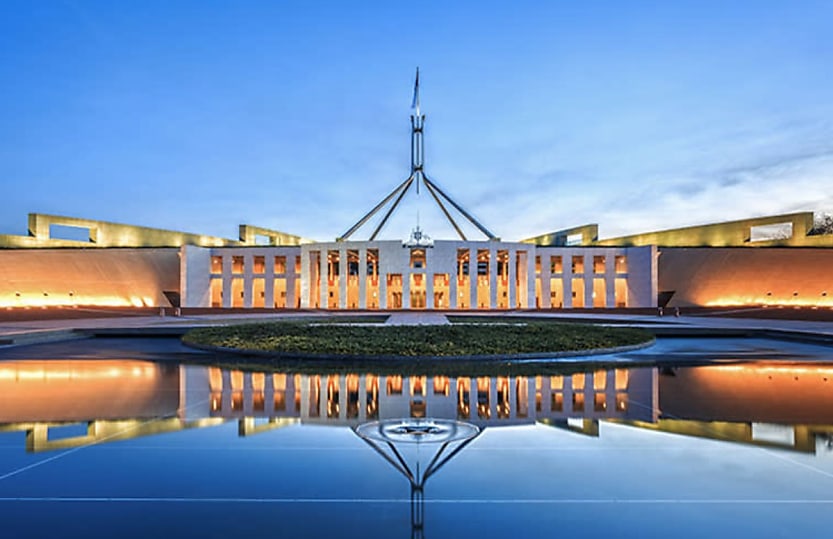Draft legislation released on promotor penalty reforms

The government has released draft legislation in response to the PwC scandal aimed at strengthening the promoter penalty laws and the Tax Practitioners Board.
Treasury has today published four sets of draft legislation in relation to the government’s response to the PwC tax leaks matter, which will strengthen the powers of the Tax Practitioners Board, amend the promoter penalty laws and remove limitations within the tax secrecy laws.
The government plans to implement the four sets of legislation this year with consultation on the amendments closing on 4 October 2023.
A fact sheet accompanying the draft legislation has also been published which provides further details on each of the proposed measures.
Reforms to Promoter Penalty Laws
Treasury said the proposed amendments to the promoter penalty laws aim to improve the ability of the Commissioner to target promoters of tax exploitation schemes and schemes being misrepresented as having ATO endorsement, and the ability to seek the application of civil penalties.
The draft legislation will align the civil penalties that the Federal Court of Australia can impose on promoters with those in the Corporation Act 2001.
Under the current laws, the Federal Court of Australia may impose a maximum civil penalty that is greater than 5,000 penalty units (currently $1.57 million) for individuals or 25,000 penalty units (currently $7.8 million) for a body corporate, or twice the consideration received or receivable by the entity (and associates of the entity) in respect of the scheme.
The Explanatory Memorandum said these penalties have not kept pace with other developments in the law.
“When the promoter penalty provisions in Division 290 in Schedule 1 to the TAA 1953 were introduced in 2006, the intention was to align the maximum penalty with the Trade Practices Act 1974. Since then, the maximum civil penalty under the promoter penalty laws has remained unchanged (in penalty units),” the EM stated.
“By contrast, the maximum civil penalty has significantly increased, in penalty units, in comparable legislation, including both the Competition and Consumer Act 2010 and the Corporations Act 2001.”
The draft legislation also expands the application of the current regime by broadening the scope of important definitions.
The draft bill broadens the meaning of ‘promoter’ to include entities that have received a benefit, rather than ‘consideration’ in respect of the marketing or growth of interest in a scheme.
“This change allows the Commissioner to apply for an order that an entity has contravened the promoter penalty laws where the promoter has received a benefit from promoting a scheme that is not necessarily received directly from a client, such as increasing their client base,” the EM stated.
“This amendment allows the Commissioner to apply the test to situations where the benefit is less obvious, intangible or disguised.”
The proposed measures will also increase the time the ATO has to bring an application for civil penalty proceedings in the Federal Court of Australia from four years to six years.
The penalties applying to corporate entities will also be extended to non-corporate significant global entities (SGEs) to ensure that large entities engaging in the promotion of tax exploitation schemes will be exposed to the same potential penalties, regardless of how they structure their business.
“SGEs include global parent entities, and members of groups which have global parent entities with annual global income of more than $1 billion,” a fact sheet accompanying the draft legislation stated.
“An SGE can be a public or private company, a trust, a partnership or an individual. This will ensure that large multidisciplinary firms, including accounting partnerships, are held accountable.”
Implementing recommendations from the TPB review
Draft legislation has also been released on proposed enhancements to the Tax Practitioners Board.
The amendments include improving the quality and usefulness of the TPB Register and extending the standard timeframe in which the TPB may conduct an investigation to 24 months.
In addition to an extended investigation timeframe, the amendments also create a new option for the TPB following the conclusion of an investigation.
The TPB will have the option not to pursue administrative sanctions or civil penalties, and instead to publish the findings of the investigation on the Register.
“The ability to publish findings of an investigation on the Register has been added as scenarios may arise where there has been a breach of the TAS Act, but pursuing sanctions is not a reasonable course of action,” the EM stated.
Amendments to information sharing
Another set of draft legislation contains amendments that will remove limitations in the tax secrecy laws that were a barrier to regulators acting in response to PwC’s breach of confidence.
“The PwC matter has highlighted that the ATO and TPB secrecy laws can prevent the regulators from disclosing serious misconduct even where it would be in the public interest to do so. The reforms will enable any similar misconduct to be reported and acted on in a timely way,” the fact sheet stated.
The amendments also enable the ATO and TPB to refer ethical misconduct by advisers (including but not limited to confidentiality breaches) to prescribed professional associations for disciplinary action.
Extending whistleblower protections
Draft legislation has also been released on extending whistleblower protections for disclosures to the TPB as well as the number of bodies that provide assistance in relation to whistleblower disclosures.
The PwC scandal exposed severe shortcomings in Australia’s regulatory frameworks, including limitations in the abilities of Australia’s regulators to receive and share information from whistleblowers, the EM stated.
“These limitations arbitrarily and negatively constrain the integrity of the taxation system.”
About the author







